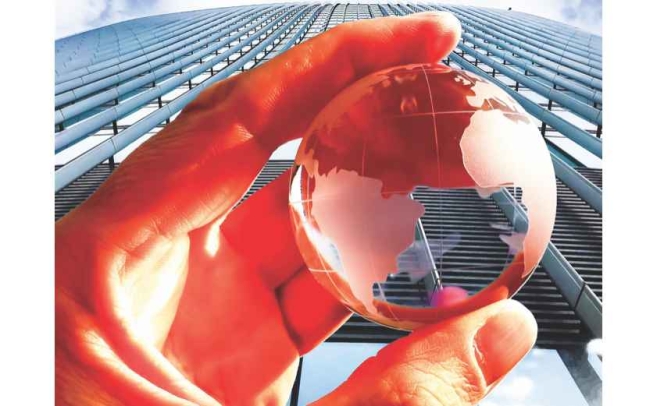
It was only many years later that we learnt about the atrocities and the inhuman ways the natives of the Amazon Valley were subjected to by the white barons to develop exporting of natural rubber to Europe to provide the main raw material for the automotive tyre industry which was gradually evolving in to a flourishing industry. The inventing of synthetic rubber in the late 1940s and the development of SBR due to the short supply of natural rubber from the colonies in the East to cater for the growing demand for tyres used in the military vehicles during the Second World War and the Korean War is another episode of beyond the border commercial endeavours.
Although the word ‘globalisation’ was coined by Theodore Levitt in 1983 through an article ‘Globalisation of Markets’ which appeared in the Harvard Business Review (May-June 1983), I feel that we should go way back in the annals of history to get an understanding of the term. This knowledge may not look attractive to the modern business world. Nevertheless, the sociologists and others of similar disciplines will certainly find such knowledge useful in comprehending the modern day socio-economic woes.
Origins of globalisation may possibly be traced back to early human migrations, presumably from the Olduvai George Gorge, a site in Tanzania that holds the earliest evidence of human ancestors. Human migration is the movement of people from one place to another, particularly different countries, with the intent of settling temporarily or permanently in the new location. It typically involves movement over long distances. The driving motive, namely seeking dominance over fellow men and exploiting the natural environment to achieve success, does not seem to have changed over the millions of years.
The emergence of the great civilisations, e.g. Indus Valley, Mesopotamia, and their subsequent decline can be attributed to globalisation. Similarly, the invasions and cross-border military conquests of historical fame (or notoriety) such as that of Alexander the Great and colonisation by the West for the exploitation of natural wealth in Asia, Africa and South America reveals an ugly facet of globalisation.
The Silk Route interlinking East Asia and Southeast Asia with South Asia, Persia, the Arabian Peninsula, East Africa and Southern Europe, on the other hand, was central to the economic, political, cultural and religious interactions between these regions form 2nd century BCE to the 18th century.
The industrialisation and expansion of business and commerce across countries during the past 300-plus years was fuelled by the four industrial revolutions, or waves as some prefer to identify them, namely steam power, conveyor system, computers and digitalisation. The process is continuing to the unforeseeable future with new knowledge and innovations fuelling the globalisation.
The multifaceted nature of globalisation has commonly been identified into eight types as shown below:
• Political Globalisation
• Social Globalisation
• Economic Globalisation
• Technological Globalisation
• Financial Globalisation
• Cultural Globalisation
• Economic Globalisation
• Geographical Globalisation
My intention is not to delve in to a discussion about the pros and cons of globalisation, which has been comprehensively documented, but to highlight on some key aspects from this part of the world, especially of the Asian subcontinent.
Knowledge dissemination across border, in my view, is the single most important factor associated with globalisation. This appears common to all the above types of globalisation. The dissemination of the Buddhist doctrine by the great Emperor Asoka to countries spreading from the far East to the Central Asia and Middle East including the present Sri Lanka during 3rd century BCE is one of the earliest recorded instances of globalisation.
Countries with long histories going back to 3,000 to 4,000-plus years, such as India, China and Sri Lanka, possessed a vast knowledge base ingrained in the social consciousness. This appears to have significantly influenced the philosophical and intellectual thought of the Greek and Persian periods. Unfortunately, a major part of this knowledge has been eroded through the influence of the West, which started around the 16th century. One good example of this knowledge found in the ancient irrigation knowledge of Sri Lanka is the engineering marvel of a gradient of 1 inch per mile in an ancient canal about 87 km long, built to connect two man-made reservoirs in the 5th century AD. Similarly, India and Sri Lanka possessed a vast indigenous knowledge base in medicine, astrology, architecture, agriculture, irrigation and astrology, and it is somewhat unfortunate that this knowledge has not been adequately globalised. The only significant inroads are seen in tourism. But that too are based on the western norms.
On the other hand, we have acquired a vast knowledge from the industrialised countries on modern management thoughts and technologies which have enabled industrialisation and improvement in living conditions of the populace. In this era of interdependency, a country cannot afford to ignore the technologies which are necessary to maintain a suitable level of competitiveness internationally. However, if this is accomplished at the expense of ignoring the inherent social and cultural foundations, the long-term adverse consequences would be disastrous and unimaginable.
The adverse long-term consequences of the use of chemical fertilisers and pesticides and the global addiction to pharmaceuticals are already seen physically and socially in practically all the countries, especially the so called underdeveloped or developing countries.
The aftermath of the Covid-19 pandemic and the irreversible effects of global warming are two examples of globalisation which are affecting the mere sustenance of mankind.
A country can immensely benefit by striving for stars through adopting modern technologies. However, the absolute importance of a strong base cannot be ignored or taken lightly. Back to a strong base and reinforcing the base lies at the core of sustainable development.
The words of Mahatma Gandhi echoing from the past reaffirm this plain truth in no uncertain terms.
“I do not want my house to be walled in on all sides and my windows to be stuffed. I want the cultures of all lands to be blown about my house as freely as possible. But I refuse to be blown off my feet by any.”
“What's past is prologue," a quote from William Shakespeare's ‘The Tempest’ presumes that though history is written, the future is anyone's to decide – with the knowledge gleaned from the past. (TT)
- Titan International
- Titan Radial Trail A/T
- Titan Radial Trail HD
- All-Terrain Trailer Tyres
- High-Speed Trailer Tyres
Titan Launches Radial Trail A/T And Unveils Speed Rating Upgrade For Radial Trail HD
- By TT News
- March 05, 2026
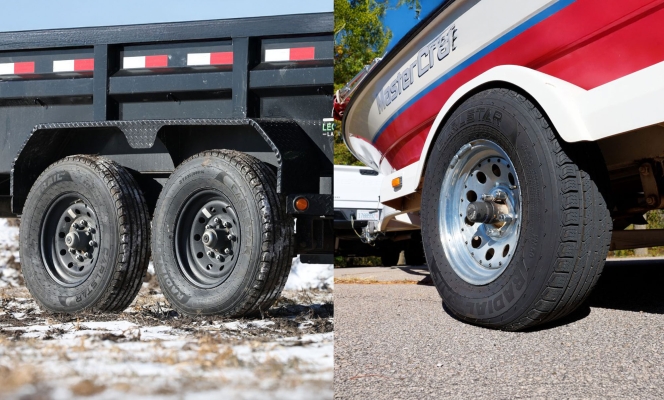
Titan International has introduced the Radial Trail A/T, a new all-terrain high-speed trailer (HST) tyre described as the first true product of its kind in the industry. Unlike conventional trailer tyres that are often adapted from older light truck designs, this model has been engineered entirely from the ground up as a dedicated trailer tyre capable of performing reliably across diverse environments. Alongside this launch, Titan has announced a speed-rating upgrade to its established Radial Trail HD tyre.
The new Radial Trail A/T tyre’s field-tested design incorporates an aggressive tread pattern for enhanced traction on gravel, mud, grass and uneven backroads. The tyre also features a centre tread bridge that lowers rolling resistance to support better fuel efficiency and towing stability. Shoulder tread bridges promote even wear and extend the tyre’s lifespan while reducing road noise, and an open shoulder configuration helps dissipate heat and shed debris. Alternating scoops improve control on soft surfaces such as sand and mud, and extended tread elements along with a rim guard offer added protection against scuffs and impacts. The Radial Trail A/T is currently available in size ST235/75R15 LRE, with four additional sizes expected to roll out over the summer.
Now carrying an N speed rating, which allows for operation at speeds up to 87 mph (approximately 140 kmph), the updated Radial Trail HD tyre incorporates heat-resistant engineering to deliver reliable performance under demanding conditions while surpassing Department of Transportation standards. The enhanced Radial Trail HD tyres are available for order immediately.
Both product releases reflect Titan’s continued focus on advancing trailer tyre technology through purpose-built solutions. Whether used for long highway journeys or off-road exploration, these tyres aim to provide drivers with improved traction, durability, and dependability. Together, they represent the company’s broader effort to support trailer owners with greater confidence and peace of mind on the road.
Ryan Fuller, High Speed Trailer Product Manager, Titan Specialty Division, said, “Titan is setting a new standard in high-speed trailer tyre performance. The Radial Trail A/T is the first trailer tyre truly engineered for all-terrain conditions, not adapted from outdated moulds. Combined with the enhancements to the Radial Trail HD, we’re giving our customers unmatched confidence whether they’re hauling down highways or navigating rugged backroads.”
- Continental
- 2026 Tire Technology Awards
- Tire Manufacturer of the Year
- Environmental Achievement of the Year – Manufacturing
- Sustainability
Double Win For Continental At 2026 Tire Technology International Awards
- By TT News
- March 05, 2026
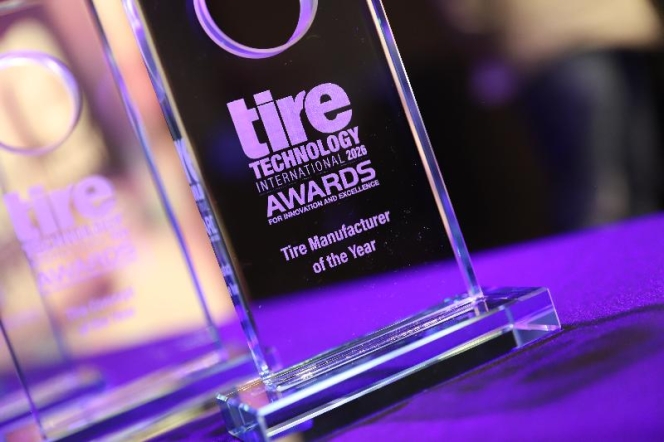
Continental has once again been recognised as ‘Tire Manufacturer of the Year’ at the latest edition of Tire Technology International Awards for Innovation and Excellence, marking the fifth time it has received this prestigious honour. The independent jury acknowledged the company's groundbreaking tyre technologies, innovative measurement approaches and continuous production process enhancements for establishing new industry standards. Additionally, Continental received the ‘Environmental Achievement of the Year – Manufacturing’ award for its substantial progress in reducing water consumption during tyre production.
During the 3 March ceremony in Hannover, the jury specifically highlighted several key developments from Continental's 2025 initiatives. The company advanced sustainability through the adoption of renewable synthetic rubber components, including pyrolysis oil recovered from end-of-life tyres and recycled cooking oil. A collaborative effort with the Technical University of Braunschweig yielded an innovative method for detecting tyre wear particles using a specialised vacuum system positioned behind drive wheels, equipped with sensitive particle sensors capable of identifying even microscopic airborne debris from various vehicle locations.
The VanContact A/S Eco received special recognition as the first van tyre to achieve the highest ‘A’ rating across all three EU tire label categories – rolling resistance, wet grip and rolling noise. Continental's partnership with the Deutsche Gesellschaft für Internationale Zusammenarbeit promoting responsible natural rubber sourcing in Indonesia also earned jury commendation.
Between 2020 and 2025, Continental successfully reduced water withdrawal per metric tonne of product by over 10 percent across all production facilities, conserving an impressive 197 million litres of water. This achievement resulted from implementing advanced filtration and membrane technologies that enable approximately 90 percent of wastewater to be treated and reused. The company maintains a comprehensive water management approach, systematically refining processes related to heating, cooling and sanitation. External validation of these efforts came through a ‘B’ rating from the independent organisation CDP for Continental's 2025 water management practices.
Edwin Goudswaard, Head of Research and Development at Continental Tires, said, “Tyres are our passion. We are committed to optimising them and making our manufacturing processes even more advanced and resource-efficient. Our greatest strength is our global team, working together closely to develop highly creative and innovative solutions. The jury honoured this very special commitment. And I would like to express my heartfelt thanks to all our colleagues for their remarkable dedication.”
Henning Mühlenstedt, Head of Future Technologies and Sustainable Infrastructure at Continental Tires, said, “Water is a valuable resource. Our continued progress in reducing consumption at our plants demonstrates how effective our approach is.”
TRA Announces 2026 Briefing Day Focused On Circular Economy
- By TT News
- March 05, 2026
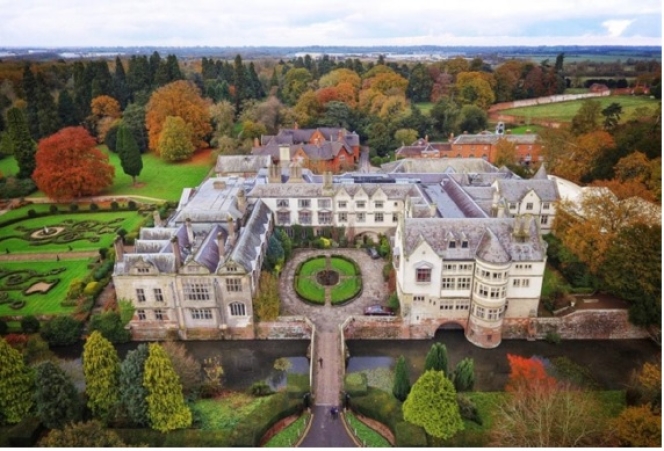
The Tyre Recovery Association has confirmed that its 2026 TRA Briefing Day will take place on 15 September 2026 at the Coombe Abbey Hotel in Coventry. The event, themed Giving REAL Meaning to the Circular Economy, will provide essential insights into the challenges and opportunities currently facing end-of-life tyre recycling both in the UK and globally.
Now an annual fixture, the Briefing Day aims to bring together industry professionals to discuss key developments in the sector. Attendance is free of charge for TRA members, media representatives, industry partners and regulators. For all other participants, a fee of GBP 70 plus VAT will apply, which includes access to a buffet lunch and refreshments throughout the day.
Those interested in attending are encouraged to register in advance by contacting the TRA office via post, telephone, email or through the association’s website. The event promises to deliver valuable updates and analysis for all those involved in the tyre recovery and recycling industry.
Hankook Confirms Partnership As Sponsor For Convoy Truck Shows 2026
- By TT News
- March 04, 2026
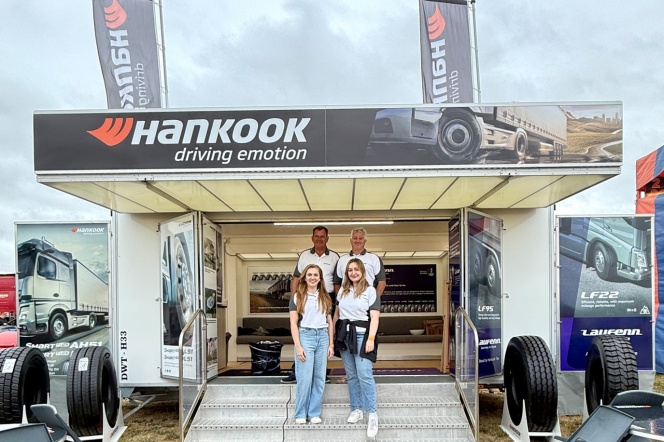
Hankook has confirmed its partnership for the 2026 Convoy Truck Shows, stepping in as an infield partner for the series, which runs in tandem with the British Truck Racing Championships (BTRC). These events offer a distinctive fusion of high-octane track action and the immersive atmosphere of a large-scale truck gathering. This renewed involvement deepens Hankook’s footprint at some of the most eagerly awaited dates on the UK motorsport and haulage calendar.
The season’s schedule commences with Convoy on the Plain on 16–17 May, followed by Convoy Cymru on 20–21 June. The flagship gathering, Convoy in the Park, will round off the summer season on 8–9 August. Attendees can look forward to a full agenda of British truck racing, breathtaking stunt performances, live entertainment and attractions for all ages, alongside a remarkable display of working vehicles, custom rigs and pristine show trucks. Mirroring its sponsorship of the Devon Truck Show, Hankook’s partnership with the Convoy series supports its wider mission to generate substantial donations for local charitable causes and community groups, positioning it as an event with purpose beyond spectacle.
At each of these shows, Hankook will spotlight its cutting-edge range of commercial and consumer tyres. Key exhibits will feature the SmartFlex AH51 for steer axles and the SmartFlex DH51 for drives, both engineered for long-haul and regional use and prized for superior traction and extended durability. Also on show will be the SmartFlex TH31 trailer tyre, the Vantra Transit summer tyre for commercial vans and several models from the Laufenn portfolio, such as the LZ22 all-weather drive tyre, the LF21 all-position tyre and the robust LF95 trailer tyre.
Rounding out the display are the Dynapro HP2 all-season SUV tyre and the iON evo SUV, a cutting-edge summer tyre purpose-built for electric vehicles, underlining Hankook’s forward-looking approach to sustainable mobility. Through its involvement in the Convoy Truck Shows, Hankook reinforces its dedication to the haulage industry by engaging directly with drivers, fleet operators and enthusiasts, showcasing tyre innovations focused on safety, efficiency and peak performance, all while actively contributing to valuable community initiatives.
Event Director Mike Quartley said, "We’re thrilled to have Hankook Tyre UK return as an official sponsor of the Convoy Truck Shows. After the success of last year’s collaboration, continuing the partnership was an easy decision for us. Hankook’s commitment to the industry and to our events adds real value across the board – from contributing to the scale and quality of the events to elevating the atmosphere and experience for our audience. We’re proud to be building on this relationship as the Convoy series continues to grow.”







Comments (0)
ADD COMMENT